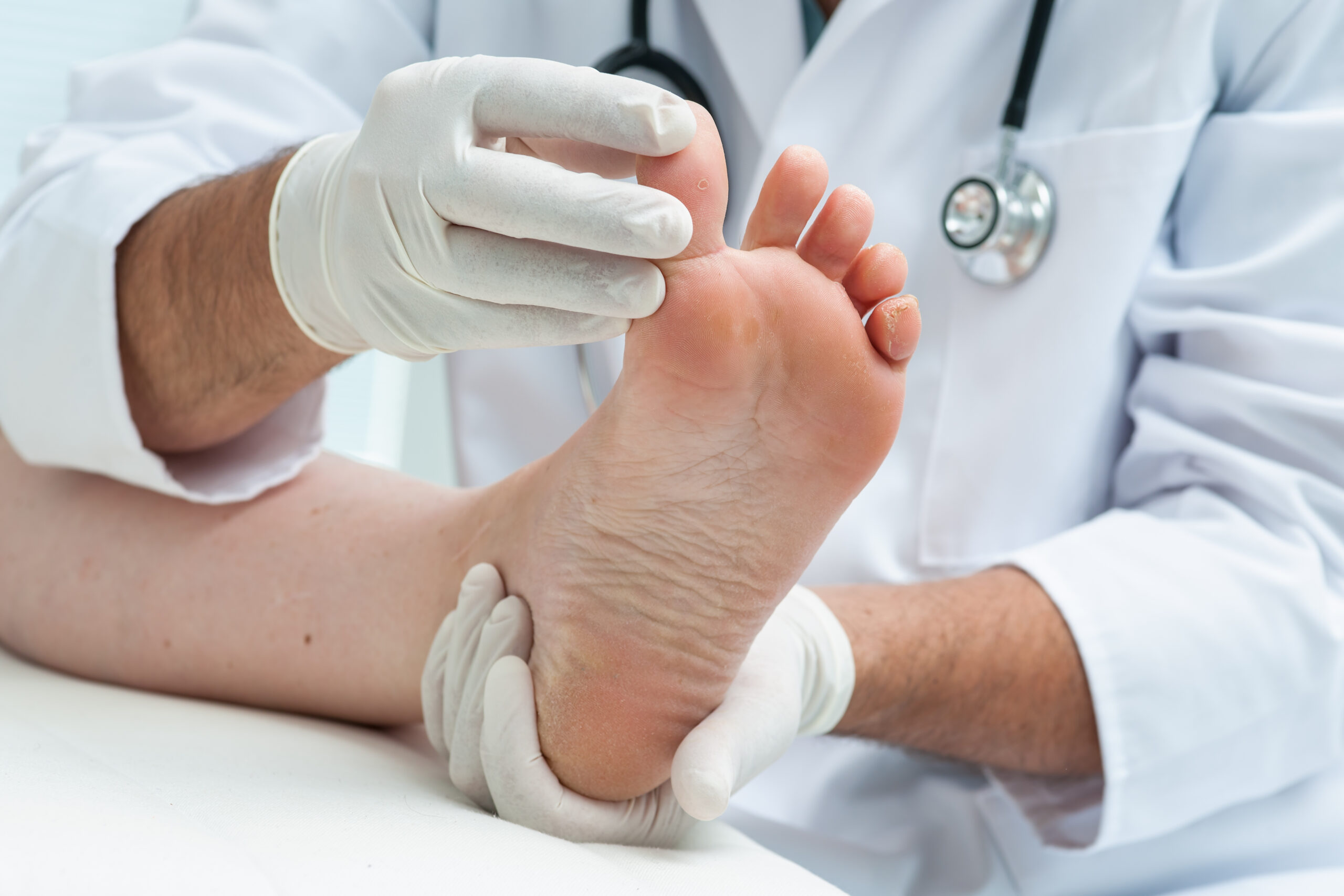European Foot and Ankle Clinic
We can help you! For your first evaluation and resolution to your concerns please visit us in our Hallandale Beach FL location. We speak English, Spanish, Polish and Russian.

Proper Foot Care and Protection for Diabetics
Proper Foot Care and Protection for Diabetics
Proper foot care is essential for individuals with diabetes because they are more prone to foot problems and complications. High blood sugar levels can cause nerve damage (diabetic neuropathy) and poor blood circulation (peripheral arterial disease), which can lead to foot ulcers, infections, and even amputation if not managed properly. Here are some important tips for foot care and protection for diabetics:
- Daily foot inspection: Inspect your feet thoroughly every day, looking for any cuts, blisters, sores, redness, swelling, or other abnormalities. If you have difficulty seeing the bottom of your feet, use a mirror or ask someone for assistance.
- Maintain good hygiene: Wash your feet daily with lukewarm water and mild soap. Make sure to dry them thoroughly, including between the toes, as moisture can lead to fungal infections. Avoid soaking your feet, as it can dry out the skin.
- Moisturize carefully: Use a moisturizer or emollient to prevent dry skin, but avoid applying it between the toes to prevent excess moisture buildup. Dry skin can crack and lead to infections.
- Trim nails properly: Cut your toenails straight across and avoid cutting too close to the skin to prevent ingrown toenails. If you have difficulty cutting your nails, seek professional help from a podiatrist.
- Wear well-fitting shoes: Choose comfortable shoes that provide adequate support and protection for your feet. Avoid tight or pointed shoes, high heels, and open-toed shoes. Consider wearing specialized diabetic shoes or orthotic inserts recommended by your healthcare provider.
- Check shoes and socks: Inspect your shoes for any foreign objects, rough seams, or irregularities that could cause friction or injuries to your feet. Also, wear clean, dry socks that fit well and avoid those with tight elastic bands that can restrict circulation.
- Avoid walking barefoot: Protect your feet by wearing shoes or slippers at all times, even indoors. Walking barefoot increases the risk of injury and infections.
- Promote good circulation: Avoid crossing your legs for long periods and elevate your feet when sitting or lying down to improve blood flow. Regular exercise and physical activity can also help improve circulation.
- Control blood sugar levels: Keep your blood sugar levels within the target range advised by your healthcare provider. Properly managing your diabetes can significantly reduce the risk of foot complications.
- Regular check-ups: Schedule regular foot exams with a podiatrist or healthcare provider who specializes in diabetic foot care. They can assess your foot health, identify any problems early on, and provide appropriate treatment.
Remember, if you notice any signs of foot problems or have any concerns, it’s crucial to seek medical attention promptly. Early intervention and proper foot care can prevent severe complications and help you maintain good foot health as a diabetic.
Call to schedule an appointment for any our Hallandale Beach podiatry offices: 754-971-6090
Lear more: https://europeanfootandankleclinic.com

